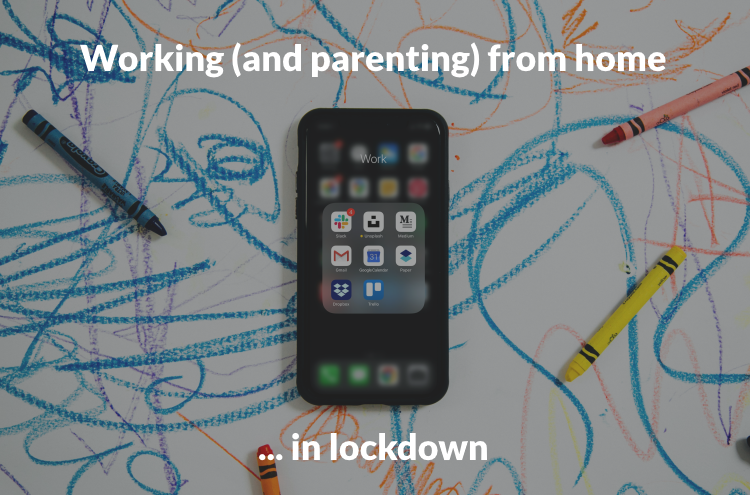How to keep coding during lockdown

Regional responses to the Covid-19 pandemic have varied, but one common measure has been an enforced state of quarantine. In recent weeks, some of you have contacted us concerned about the difficulties this causes, particularly for mothers suddenly having to balance coding with childcare.
Here we compile a number of resources we have been sharing on social channels, found with thanks to members of the open source community and our contacts at Travis CI who know a lot about working remotely.
Useful guides
Rebecca Cox from The Mother Edit offers tips for single parents (also good for those sharing responsibilities) including how to create structure, boundaries, and downtime.
RGSoC aims to be family friendly with approaches similar to the policies outlined by Unicef, such as taking measures to avoid burnout and allowing flexibility with time commitments (more on this below).
As Kristen Hare notes, it isn’t always about compartmentalising home and work life or studies. Some kids can actually help by taking care of some household chores. Maybe including them in what you’re doing will keep them quiet or draw understanding and support from team- or workmates.
Take control of the situation with these tips on useful apps, preparing for meetings (or pair-programming), and finding a space where you can feel productive.
When all else fails, being creative may help you focus. From allocating uninterrupted time in the day to spend with the little ones to enlisting family members to act as ‘virtual babysitters’.
Support for RGSoC students
Remote working is essential to Rails Girls Summer of Code. For example, it is common for project maintainers to mentor teams from a different city or even continent.
In the past, RGSoC teammates have always been required to share a working space to aid their pair-programming experience. This year, we decided to relax this rule to make the program more inclusive to applicants who live in isolated communities, where finding a teammate can be difficult. Many students outlined a plan for remote pairing in their applications, and most teams we chat to during quarantine call us from separate locations - even if they are neighbours!
While the participating teams have yet to be finalised, it is likely some RGSoC students this year will themselves be mothers. So, what can we - and the teams - do to ensure this experience is fulfilling and manageable?
Childcare
The scholarship enables students to focus on their projects for 3 months. Where possible, RGSoC will support childcare costs. However, we realise this is not an option for locations required to maintain social distancing.
Part-time teams
This year, 52% of applications opted to participate full-time. We will offer shortlisted applicants the chance to choose part-time before the program commences for students who need more time for their families.
Build connections
Networking is a fundamental element of the program. It’s all about building a future in tech, whether a basis for support, finding out about new meetups and conferences, or potential job opportunities.
Who knows what parents are going through better than other parents? This is why we will ensure the teams have opportunities to connect, such as with a dedicated Slack channel for mothers.
Find a schedule that works
With even part-time teams expected to put in 20 hours a week, RGSoC is a big commitment. Cooperation and communication are essential to success. While applying, many teams have already discussed their availability and schedules with their teams. Parents or not, successful applicants should reach out to their coaches and mentors again in June to reassess their work times. Split days, and early morning, evening and weekend participation may be possible, especially where teams span different timezones.
Talk to your supervisor
Okay, it’s a terrible name. But supervisors aren’t there to make sure you’re clocking in on time and pulling your weight. Far from it: as a self-led program, students are responsible for what they put in (and get out) of RGSoC.
Each team is assigned a supervisor to support non-tech issues. This includes asking after team members’ wellbeing, how they’re coping with the workload, etc. At any time, students can connect with their supervisor, who will endeavor to help with ad hoc issues.
Fexibility
We cannot foresee every eventuality. Even the best-laid plans can be derailed. One year ago, no one would have thought the news in 2020 would be filled with reports of a global pandemic.
There is rarely a one-size-fits-all answer. As such, we have consciously refrained from implementing too many measures specifically in response to lockdown. Instead, we will monitor the situation, talk to teams frequently, and determine what support we can possibly tailor to individuals’ needs.
Share your thoughts
Have you found other resources you think would be helpful to the RGSoC and wider open source communities? Maybe advice for parents, useful tools, code teaching materials/courses, or alternative funds to help with childcare costs.
Please post your links on social media and include the @RailsGirlsSoC handle on Twitter or mention us in your Facebook posts and we’ll share them.
If you have any suggestions for how we can support participants on RGSoC 2020, please email us.